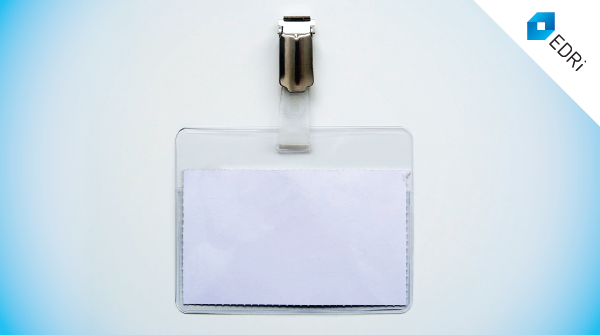Fighting online hatespeech: An alternative to mandatory real names
The internet facilitates debates: People around the globe can connect at almost zero cost, and information and opinions that would otherwise hardly be noticed can go viral through social media. However, services like Twitter and Facebook can also be used for targeted defamation. Especially people who belong to minorities or endorse views outside the mainstream have described grave verbal attacks. Women who are active in politics often face rape threats. Such abuses of online communication should not be tolerated in a democracy.

An obligation for real names is not a solution
In response, “number plates” for the internet have been proposed – people should be required to disclose their real names before they can participate in forums and on social media. However, such a “real name obligation” would achieve very little in terms of protections against verbal abuse online, and at the same time, it would cause serious collateral damage.
The arguments against an obligation for real names are manifold: For example, its supporters fail to notice that there has been an obligation for real names on Facebook for many years, which many users simply ignore. It’s doubtful whether such an obligation would even be admissible under European law. In any case, such a policy would only apply at the national level. Should platforms simply hide all posts by users from other countries where real names are not required by law?
Everyday experience and recent studies show that a remarkable number of users do not shy away from criminal online activities, even if they are acting under their real names. This is because the problem with pursuing crimes online is not the anonymity of the offenders; it is the irritatingly low level of engagement from the responsible authorities. If it’s possible to commit such crimes without any risk of consequences, this will impact the popular sense of right and wrong.
The biggest disadvantage of a real name obligation is that it would silence those who depend on anonymous or pseudonymous communication. Conservatives often assume that such a need only exists in authoritarian states. However, even in a democracy many people have comprehensible reasons why they would not or cannot communicate openly. For example, people who engage against Nazis can hardly make this public in some regions of Germany without facing significant risk of physical harm. Interestingly, even almost all German judges and prosecutors who actively use Twitter prefer to do so under a pseudonym.
Better: Target the accounts
Introducing a real name obligation would be a dangerous error of judgement, but legislators do need to act. Because online bullies cannot always be identified, the focus should be on their weapons – their accounts, which they use to undertake verbal acts of violence. A judicial process should be introduced in which victims or victim protection organisations can request for accounts that are abused for unlawful speech to be blocked. Courts of law could impose blockages on individual accounts for a certain period of time – or permanently, especially in recurrent cases. The platforms would be barred from showing these accounts to users in a specific geographical location.
Such a judicial process would have many advantages: The identity of the people behind an account would not matter anymore. This would also be an effective course of action against account holders who are known but out of reach, for example because they are located abroad. Contrary to the approach of the Network Enforcement Act (NetzDG) it would not be the platforms who decide, often in dubious ways, which articles are illegal – this would be left to an independent court. Courts have demonstrated that they are capable of making such decisions – in particular, there are courts that specialise in press law and are accustomed to rule even on delicate freedom of speech questions within a few hours.
The NetzDG made social media platforms “addressable”
Of course, such a judicial process would raise questions: Who would be the subject of such a request if the responsible person is not known? With a bit of creativity, those details can be resolved. In the US a judicial petition against “John Doe” is filed in such cases. This anonymous party would be represented in court by the platform that would be responsible to implement any blockages.
Each of the large platforms has already registered a point of contact in Germany pursuant to § 5 NetzDG, so that they are always reachable for courts of law. This procedure could also ensure that the people behind an affected account can be heard in court, if the law would oblige platforms to forward the petition to them (via email for example). This would give the account holder the option to reveal their identity and take over the judicial process under their own name.
Legislative competence probably with the Federal Government
The law to create such a judicial process could be enacted by the German Federal Government. This is not about a new regulation on which content would be admissible online – this would be for the Federal States to enact and would require an arduous update of the Interstate Broadcasting Treaty (Rundfunkstaatsvertrag). The Federal Government could base this law on its competences to regulate judicial procedures as well as telemedia law. The Federal Government should urgently take this opportunity and create a “Protection against Digital Violence Act”, allowing for accounts that publish unlawful content to be blocked. The onus is still on the Federal States to become more effective in pursuing supposedly lesser online offences, which is within their legal purview.
A German version of this article was first published at https://background.tagesspiegel.de/statt-klarnamen-digitales-gewaltschutzgesetz

EU action needed: German NetzDG draft threatens freedom of expression (23.05.2017)
https://edri.org/eu-action-needed-german-netzdg-draft-threatens-freedomofexpression/
(Contribution by Ulf Buermeyer, EDRi member Gesellschaft für Freiheitsrechte – GFF, Germany; translation from German into English by EDRi volunteers Stefan and Sebastian)


